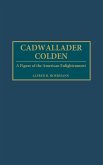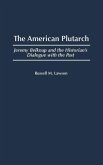In May 1704, an 80-ton brigantine under Captain John Quelch slipped into the cove at Marblehead, Mass. carrying Brazilian sugar, hides, cloth, guns, and gold dust and coins worth over 10,000 sterling-a huge fortune for the time. It was this booty and the circumstances of the voyage of the Charles, that led to Quelch's arrest on charges of piracy and murder against the subjects of Queen Anne's newest ally, the King of Portugal. Quelch's trial, called by one historian the first case of judicial murder in America, greatly influenced pirates who followed, making them far more violent and destructive. One can also see in the Quelch case the first stirrings of American rebellion against English rule. Whether pirate or privateer, Quelch suffered a travesty of justice, even by the legal standards of the time. His is a dramatic and tragic story about a man caught up in a world he no longer understands. In the middle of May in the year 1704, an 80-ton brigantine, the Charles, quietly slipped into the cove at Marblehead, Massachusetts. Her sudden and unexpected reappearance, some ten months after she had left Marblehead under mysterious circumstances, started tongues wagging down at the docks and in the dim, cramped, seafront taverns of the town. Over the following three weeks, a drama played out involving the crew of the Charles, her commander, John Quelch, and the colonial governments of Massachusetts, Rhode Island, and New Hampshire. For in the hold of the Charles lay a large quantity of Brazilian sugar, hides, cloth, guns, and gold dust and coins worth over 10,000 sterling-a huge fortune for the time. It was this booty, and the circumstances of the voyage of the Charles, that led to Quelch's arrest on charges of piracy and murder against the subjects of Queen Anne's newest ally, the King of Portugal. Occurring only three years after Captain Kidd met his end on the gallows in London, the case of John Quelch has been long overshadowed by his more infamous predecessor, but it is no less compelling. Quelch's trial, the first admiralty trial ever held outside England, was called by one historian the first case of judicial murder in America. The fate of Captain Quelch greatly influenced pirates who followed. Knowing they no longer had friends in high places rendered their careers far more violent and destructive, directed against all, including colonial governors, who represented the rule of law. Beyond the lure of the immediate charges, one can see in the Quelch case the first stirrings of American rebellion against English rule. The mob saw the high-handed treatment of Quelch as an attack on personal liberty and freedom. His trial and subsequent execution created a small chink in the wall, later widened by Boston revolts against foreign-made legislation and taxation. Quelch, like Kidd before him, could be termed a pirate-in-denial, not comprehending the changes in his political world. Whether pirate or privateer, Quelch suffered a travesty of justice, even by the legal standards of the time. His is a dramatic and tragic story about a man caught up in a world he no longer understands. Jack Quelch was hanged in Boston in 1704, but his legacy lives on. The legend persists that before they were captured, Quelch's crew managed to bury some of their gold on Star Island off the New Hampshire coast. Gold coins were actually found hidden in a stone wall there in the late 1800s. Every summer to this day the island has continued to lure treasure hunters, still searching for Quelch's gold.
Hinweis: Dieser Artikel kann nur an eine deutsche Lieferadresse ausgeliefert werden.
Hinweis: Dieser Artikel kann nur an eine deutsche Lieferadresse ausgeliefert werden.








